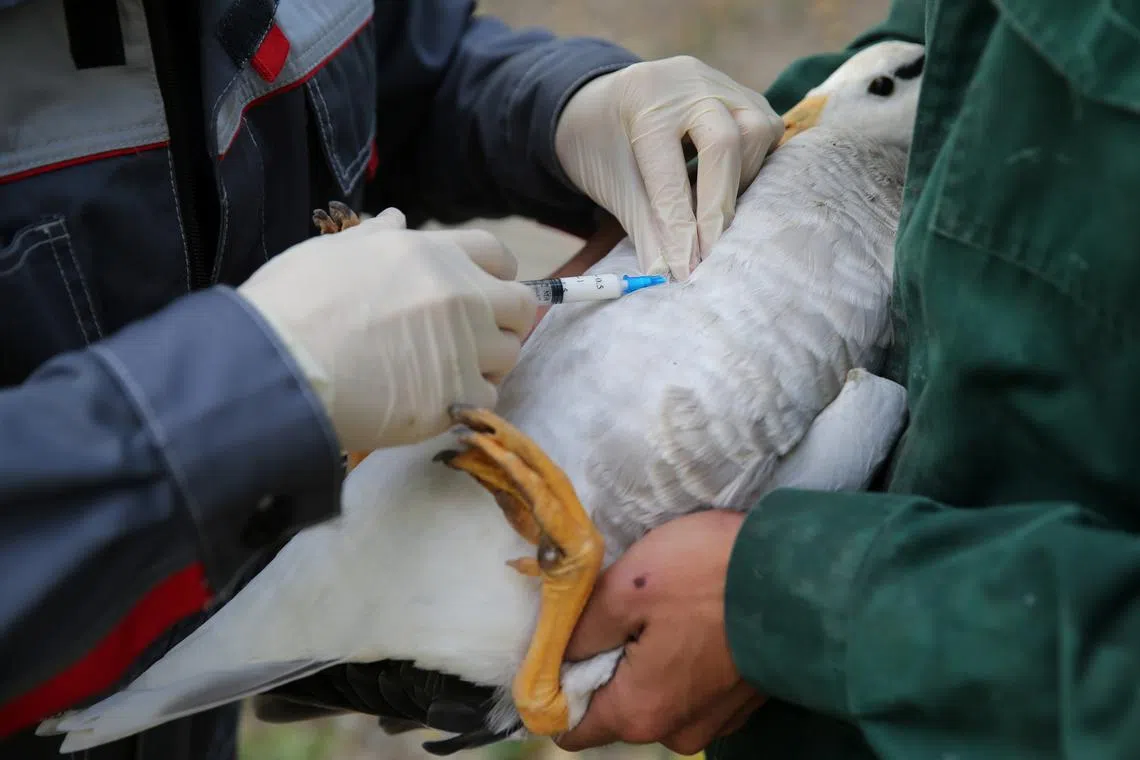Animal health body says vaccines needed to protect humans and trade
Sign up now: Get ST's newsletters delivered to your inbox

More than 633 million birds have been lost to bird flu over the past two decades.
PHOTO: REUTERS
PARIS – Vaccinating animals more widely could help stop the spread of deadly diseases, protect public health and keep global trade flowing, the head of the World Organisation for Animal Health (Woah) said as bird flu disrupts Brazilian poultry exports
Brazil, the world’s top poultry exporter, confirmed its first-ever outbreak
While most countries rely on culling policies and movement restrictions, Woah said vaccination could help reduce outbreaks while preserving trade.
“Vaccination is a tool, it’s a very good tool when it exists, but it’s up to each country, region, or group of countries to identify in which case it will be useful to use it or not,” Woah director-general Emmanuelle Soubeyran told Reuters ahead of the start of Woah’s general assembly on May 25.
More than 633 million birds have been lost to bird flu over the past two decades, the Paris-based Woah said in a report on the state of animal health released on May 23.
The disease has triggered mass culling, caused billions in economic damage, and disrupted food supply chains worldwide.
Bird flu has also spread to mammals, including dairy cows in the US, and infected hundreds of people, raising concerns it could spark a new pandemic.
If properly implemented, vaccination limits virus spread, protects animal health, and lowers the risk of human infection.
But it is costly to develop vaccines and roll them out, and vaccination programmes often lead to trade restrictions over fears that a disease may circulate unnoticed.
In France, a nationwide duck vaccination effort helped cut bird flu outbreaks from over 300 to just 10 within a year. The US and Canada eased their ban on French poultry imports in January, citing good traceability and monitoring.
Most bird flu vaccination campaigns focus on long-lived birds like ducks or breeders.
Broilers – chickens raised for meat – are typically not vaccinated because they do not live long enough, which may limit immediate use in major poultry-exporting nations.
Vaccination has helped eliminate or control other animal diseases, including rinderpest in 2011, the first animal disease ever eradicated globally, and only the second of any kind eradicated after smallpox in humans, Woah said in its report.
To address concerns that vaccinations may disrupt trade, Woah is working on global standards to distinguish vaccinated birds from infected ones, the so-called differentiating infected from vaccinated animals or Diva principle. REUTERS


